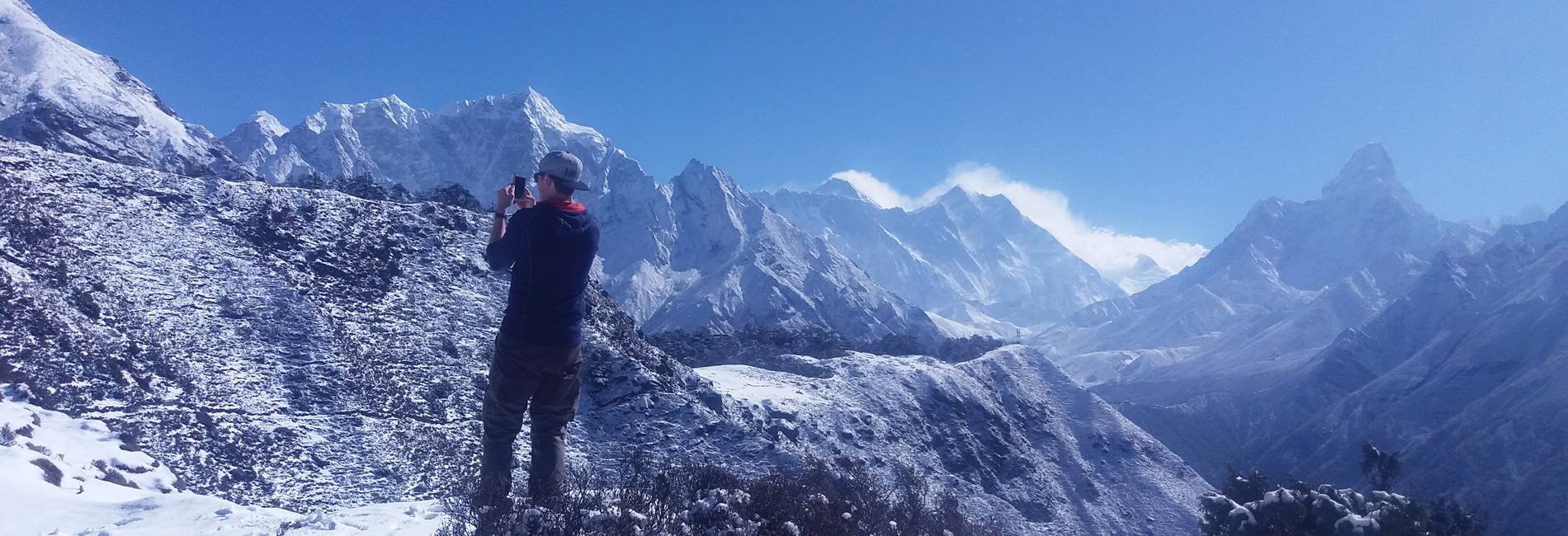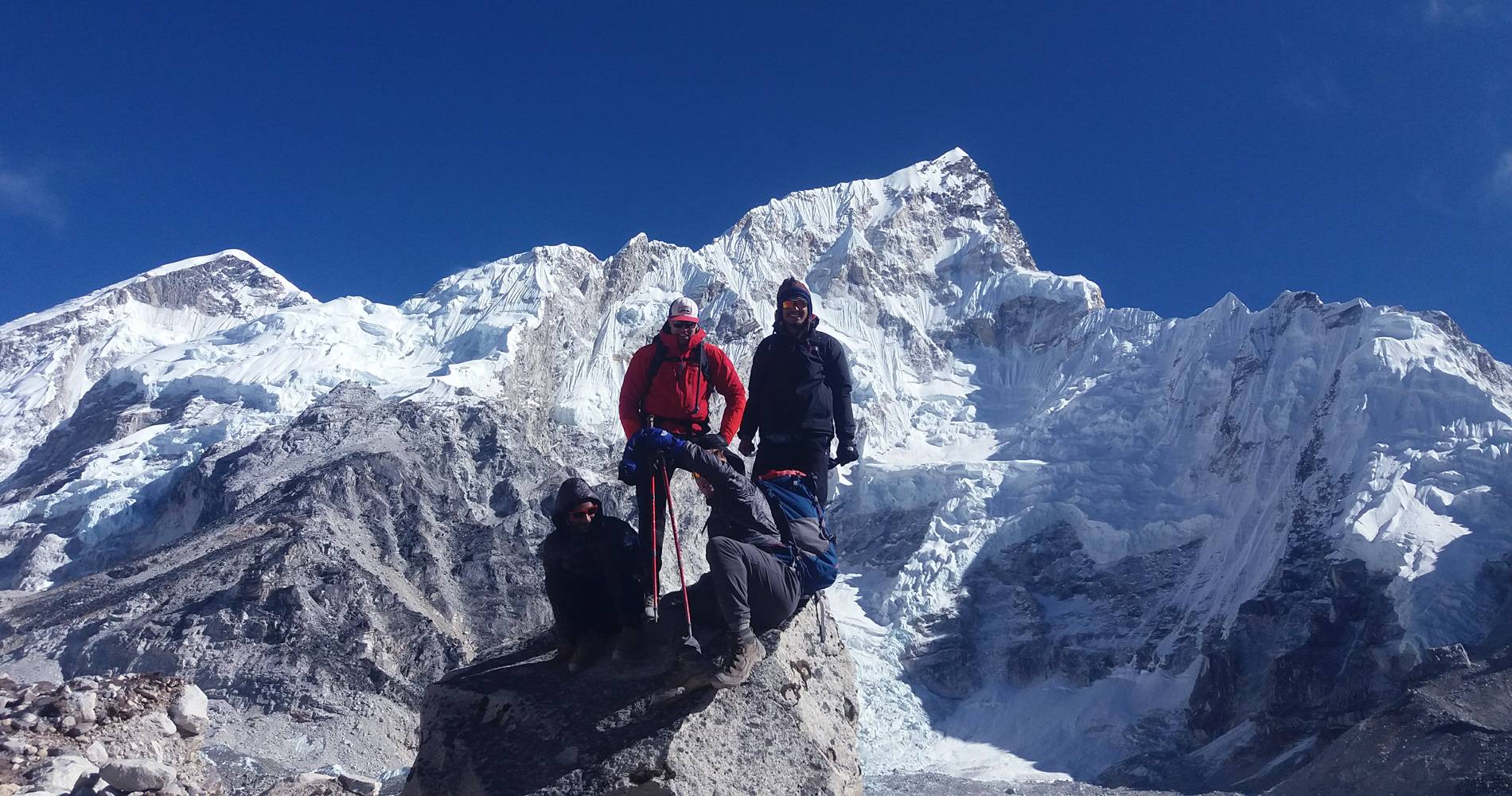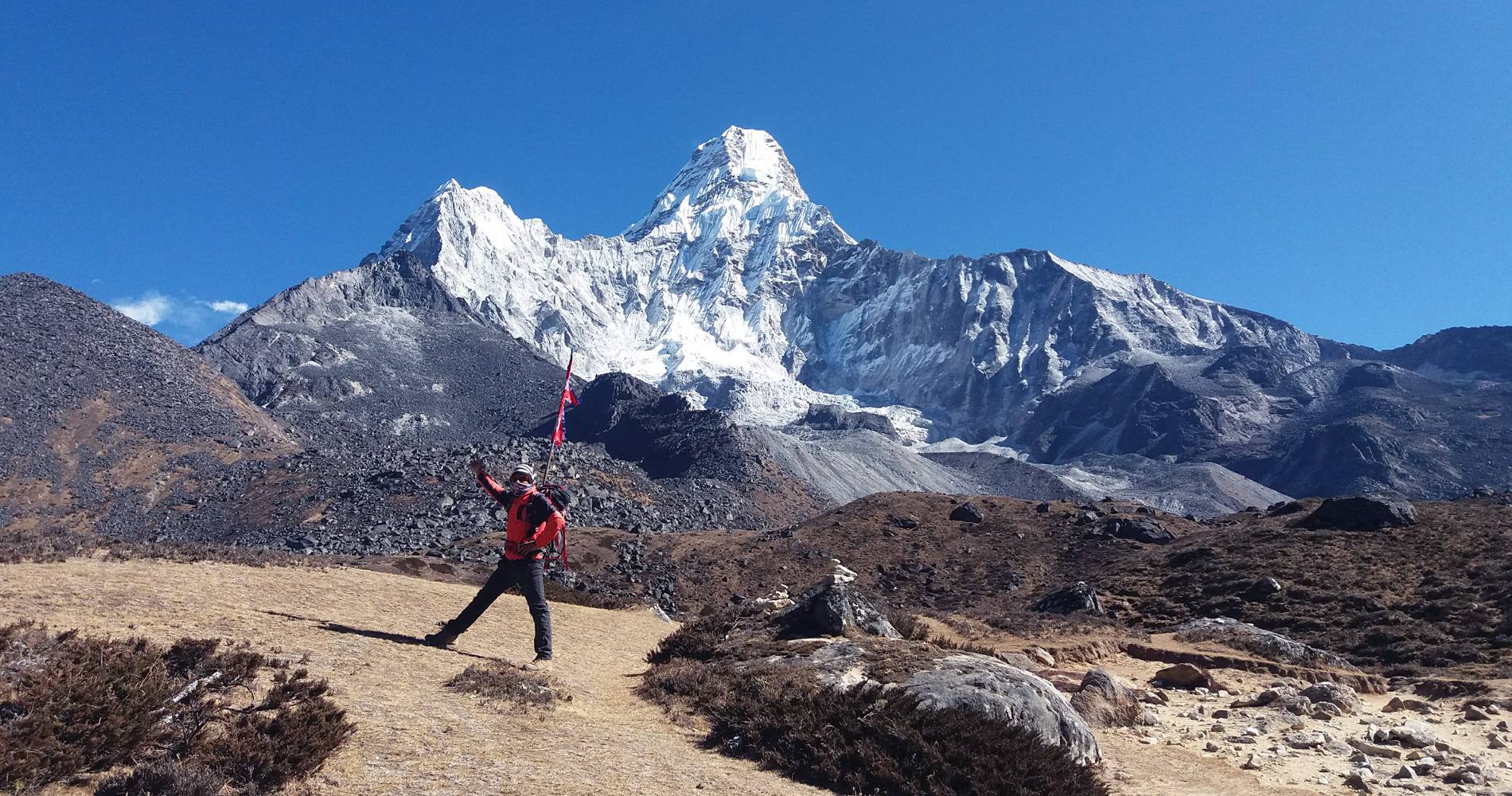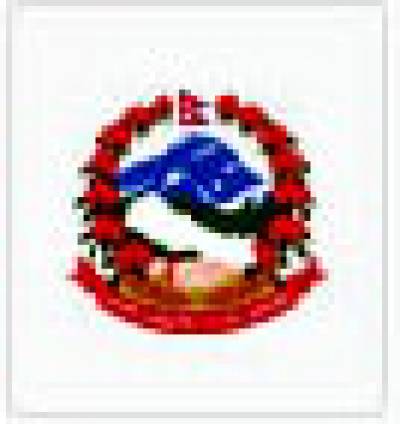11 DAYS EVEREST BASE CAMP TREK
GOB-SMACKING BEAUTY - A TRUE HEAVEN-ON-EARTH EXPERIENCE. THINK BIG – DREAM BIG - THINK EVEREST.
DON’T DREAM ABOUT IT - DO IT! This short 11-day trek to Everest Base Camp is big on adventure and natural beauty at the base of the world’s highest mountain (8848m), making it one of Nepal’s most popular trekking destinations. Join with the Lamas at Tengboche and recite the powerful Buddhist mantra “Om Mani padme hum” to purify your mind, body and spirit.
Sherpa Expedition and Trekking has tailored this trek for those who want to visit Everest Base Camp but may be lacking time. This Everest Base Camp Trek (EBC) is full of adventure, thrills and at a budget price. We will get you there on the shortest route in the shortest time available and guarantee you will leave with memories to last a lifetime!
Your journey of a lifetime begins with a short scenic flight from Kathmandu to Lukla. Your first day on the trail takes you to Phakding and then on to the famous Sherpa village of Namche Bazaar (3440m), home of many Sherpas involved in the tourism industry and where the real adventure begins. After leaving Namche Bazaar we follow the trail up to Tengboche, a village steeped in ancient Buddhist history and home to the holy Buddhist temple - Dawa Choling Gompa where you can witness the enchanting prayer mantras and pray for your own safe journey to the most sought after destination in the Everest region.
We leave Namche Bazaar and head to Dingboche before climbing to higher altitudes where your fitness will be tested. To make it easier to acclimatize we stop at Dingboche where we will stay active in order to better acclimatize (doctor’s orders). From Dingboche, we head to Lobuche (4940m) where we have unimaginable views of the giant Himalaya Massif.
The following day we ascend to Everest Base Camp (5364m) and allow our imagination to take us back nearly 70 years when Hillary and Sherpa Tenzing stood in the same place and dreamed of conquering the world’s highest peak – Mt Everest (8848m). We will enjoy views of the enormous Khumbu Glacier that ranges from 4900m to its source at 7600m. Leaving EBC we follow the trail back to Gorakshep (5185m). The following day we trek to Kala Patthar (,5555m) where views of Everest and Khumbu Glaciers at sunrise will leave you spell-bound as the light changes and reflects off the face of this enormous peak.
The trail then takes us back to Gorak Shep, Pheriche, Namche Bazaar, and ultimately to Lukla. A highlight of this journey is the scenic flight from Lukla to Kathmandu – giving you a birds-eye view of these soaring snow-clad giants.
The Everest Base Camp trek is not a walk-in-the-park, but for those with modest preparation will manage the challenging climb. This is a lifetime experience that will leave you with memories to last a lifetime.
Sherpa Expedition & Trekking can tailor this trek to suit your needs and extend it to 14 days Everest Base Camp Trek in order to make it less demanding.
You don’t have to climb Everest to appreciate its beauty. Standing at its base will satisfy the most adventurous spirit and leave imbedded in your memory the awesome spectacle that towers skyward.
Key Features of 11 Day Everest Base Camp Trek
- The quickest route with all the excitement.
- Trekking in the famed Everest conservation region.
- Awesome views of soaring snow-capped peaks.
- Visit Namche Bazaar the Sherpa capital in Nepal.
- Experience Tibetan Buddhist culture and traditions – visit a Buddhist Monastery (Gompa).
- Magnificent helicopter ride to Everest Base Camp, Khumbu Glacier, and Kalapathar.
- See the world’s highest mountain - Mt Everest.
ITINERARY
Day 1 : Arrival in Kathmandu & transfer to hotel (1,350m.)
On arrival at Kathmandu airport, you will be met by a representative from Sherpa Expedition & Trekking who will take you to your 3-star hotel. You can rest at your hotel or stroll around Thamel and do some last-minute shopping and take in the sights.
Day 2 : Scenic flight to Lukla and trek to Phakding (2,610m) Duration: 4-5 hours.
Today we take a short flight from Kathmandu and then trek to Phakding (2610m), a small village in the Khumbu region of Nepal in the Dudh Kosi river valley.
Day 3 : Trek from Phakding to Namche Bazaar (3,440m) Duration: 5-6 hours.
Today we trek through the valley with the Dudh Kosi River at our side. On several occasions, you cross the Dudh Kosi River on suspension bridges before climbing higher before reaching the small village of Jorsale in the Khumbu region – just south of Namche Bazaar. After a two hour trek, you will finally reach Namche with some fascinating views along the way, including some spectacular views of captivating Mt. Everest (Sagamartha in Nepali). You enter the Sagarmatha National Park at Jorsale where authorities will check your license. Continuing on for another 5 or 6 hours of fairly hard going we arrive at Namche Bazaar.
Day 4 : Acclimatization day at Namche Bazaar.
This idyllic town is an ideal place for "acclimatization". Health specialists recommend we spend the day being active, rather than sitting idle. From Namche it is possible to take a short hike to Everest View Resort, Thame, visit Khunde or relax and explore Namche Bazaar. Namche Bazaar is the main center of the Everest (Khumbu) region and has government offices, ATMs, internet cafes, shops, restaurants, bakery, and a colorful market each Friday evening and Saturday. A short trek of only a hundred metres will help us to properly acclimatize. Our guides will also take us to the Tourist Visitor Center near the headquarters of the Sagarmatha National Park where we can observe an assortment of relics related to the first mountaineers to climb Everest, Sherpa culture and discover the varied plant and animal life of the Everest region.
Day 5 : Trek from Namche to Pangboche (3,930) Duration: 5-6 hours.
Today we head off to Tengboche and along the trail have our first views of several enormous peaks: Ama Dablam (6812m), Lhotse Shar (8393m), Taboche (6495m), Khangtega (6782m), and Thamserku (6623m). As we continue we come to an Army barrack at Phunke Tenga (22335m) and arrive at Tengboche where we stop for lunch. After lunch we visit the famous Tibetan Tengboche Buddhist monastery and later continue on the trail and pass the Sagarmatha National park office at Debouche. Continuing we finally reach Pangboche and visit the Gompa (temple).
Day 6 : Trek from Pangboche to Thukla (4,620m) Duration: 5-6 hours.
Today we head off up stone steps until we reach Pheriche and later Thukla where we stay the night.
Day 7 : Trek from Thukla to Everest Base Camp (5,170m) and back to Gora Shep (5,180m) Duration: 6-7 hours.
Today we follow the trail and stop for lunch at Gorakshep. After lunch we continue until we reach Everest Base Camp (5364) where you have a spectacular view of Nuptse. After stopping for lunch we trek toward EBC following a trail alongside the Khumbu ice sheet. The trek around the ice sheet takes around 1.5 hours before crossing the glacier and into the region of EBC (5360m). At base camp you will have an opportunity to meet other climbers and share stories. From EBC you will have views of the Khumbu ice sheet and glacier with its frightening and dangerous crevices. We will then descend to Gorakshep where we stay the night.
Day 8 : Hike up to Kalapathar (5,550m) & trek to Pheriche (4,280m) Duration: 6-7 hours.
The early morning trek to Kalapathar (5550m) from Gorakshep will take around two hours. After a short climb to Kalapathar, you will have uninterrupted views of Everest and other towering peaks. The magnificent photos of Everest seen on the internet are taken from this vantage point. From here we head down to Gorakshep, a fairly easy downhill trek. At Gorakshep, we stop for tea and a snack before continuing on our descent to Pheriche. After accomplishing your goal of reaching EBC and experiencing high altitude climbing, you will sleep soundly at Pheriche. Today’s trek will take between 6 to 7 hours.
Day 9 : Trek from Pheriche to Namche Bazaar (3,440m) Duration: 6-7 hours.
Leaving Pheriche we take a fairly easy trek for around 30 minutes before reaching Tengboche and then descend to Phunkithanga (3200m). Our final trek is to Namche where we can celebrate our success and reminisce sharing the highlights. This is also your last opportunity to appreciate the beauty of these towering peaks. At Namche you can reconnect via the internet with the outside world, visit the bread shop and maybe hang out at a bar!
Day 10 : Trek from Namche Bazaar to Lukla (2,860m) Duration: 6-7 hours.
It is a fairly long day with a 7-hour trek from Namche to Lukla, which is mostly downhill with several sections of level ground. We leave the Sagarmatha National Park and eventually reach Lukla where we stay overnight.
Day 11 : Fly from Lukla to Kathmandu (1,350m) Duration: 30 minutes flight.
Our morning flight will have us reach Kathmandu in around 30 minutes. During the flight, you will have a birds-eye view of many of the world’s soaring peaks in the Himalaya Ranges. Your guide will escort you from the airport to your hotel. Tonight Sherpa Expedition & Trekking will put on a farewell dinner where we can share memories and our stories.
SERVICES
Costs included in your package.
- Airport picks up and transports by private Car/Jeep.
- One Night standard twin sharing Hotel in Kathmandu with breakfast.
- Three meals a day (Breakfast, lunch, and dinner) during the trek.
- Fresh fruit every evening after dinner.
- Trekking Lodge (Tea House) accommodation during the trek.
- All necessary paperwork including Sagarmatha National Park Entry Permit & Khumbu Pasang Lhamu Rural Municipality fees.
- Kathmandu-Lukla-Kathmandu (Ramechhap -Lukla- Ramechhap) flight with private airport transfer and domestic airport tax.
- A highly experienced, helpful, knowledgeable, friendly, English speaking well trained, Government license holder guide with all his salary, food, drinks, accommodation, transport and insurance.
- Strong, helpful Sherpa porters with proper safety equipment and walking equipment, his salary, food, accommodation, and insurance (one porter for two people).
- Comprehensive medical supplies (first aid kit will be available).
- Arrangement of emergency helicopter service (paid by your Travel Insurance Company).
- Use of sleeping bag, down jacket, duffel bag and walking poles (if you don’t have your own, to be returned after trip completed).
- Sherpa Expedition and Trekking T-shirt
- Government taxes and official expenses.
- Trip achievement certificate after successful trip completion.
- Oxygen meter to check your pulse and oxygen saturation and heart rate twice daily (Very useful to check Altitude Mountain Sickness(AMS) symptoms) which will ensure your health during the trek.
- Assistant guide for groups of 8 or more people.
Costs Exclude
- Meals whilst you are in Kathmandu - lunch, and dinner.
- Nepal entry visa fee (easy to obtain the visa on arrival at Tribhuvan International Airport – Kathmandu). $30 USD for 15-day, $50 USD for 30 Days, and $125 USD for 90 Days visa.
- Personal travel and medical insurance.
- International airfare.
- Your personal expenses.
- All the alcoholic and nonalcoholic, soup, tea, coffee, hot chocolate, cocoa, mineral water, extra food, cold and hot drinks on trek ( i.e. those you choose to purchase along the way and during evenings in the tea houses)
- All desserts & sweet things like chocolate, cake, pie, pudding.
- Hot shower and battery charging at the tea houses.
- Tips for the guide, porter, and driver (tipping is expected)
- Excess baggage of more than 10 kg for Lukla flight.
- NOTE: If you return earlier from the trek due to sickness or any problem, the money you paid for the flight, hotel, mountain room, food, etc. is nonrefundable, and you will need to bear the expenses for the hotel, food, etc. in Kathmandu yourself.
EQUIPMENTS
The following information will give you some idea about what you need to bring for the trek. It is important you do not forget the essential items, as this will determine your comfort and safety on the trek. Equally important is that you do not burden yourself with unnecessary equipment on the trek.
General
- All season sleeping bag and down Jacket (we can provide if you need it, but has to be returned after the trek)
- Duffle bag ( Sherpa Expedition & Trekking provide duffle bag during the trek but has to be returned after the trek)
- A wind and waterproof thin layered jacket (a must-have for morning and evenings above 3,000m)
- Daypack
Upper Body- Head / Ears / Eyewear
- A pair of half gloves
- A warmer hat that covers the ears
- Sunglasses
- Neckwarmer
- Sunscreen (35 to 60 SPF)
- Headlamp and an extra set of batteries
Hands
- A pair of half gloves for walking poles(if you prefer)
- Warmer shell gloves and liner
Upper Body
- long sleeve t-shirts
- Thermal tops
- wool jacket or pullover
- Sports bras for women and girls
- Water and windproof shell jacket
Lower Body
- Thermal underwear (especially trousers)
- windproof and waterproof trousers
- warmer trousers
- Comfortable trekking pants
- Extra casual sport pants
Footwear
- A pair of good waterproof trekking boots
- Pair of sandals
- 4-5 pairs of woolen socks
- Sock liners
- Light shoes and sneakers
- First Aid Kits and Medicines
- Assorted adhesive bandages (fabric preferred)
- Blister treatment cream or similar
- Insect / anti-itch ointment
- Ibuprofen or other pain-relief medication
- Diamox (125mg to 250mg tablets for altitude sickness)
- Warps, splints, and wound coverings butterfly bandage
- Water purifying pills
(Note our company guide will carry the medicines and first aid kits during the trek. However, we recommend you bring your personal first-aid kit as well)
Miscellaneous - but must useful on the trek
- 4 passport size photos with original passport
- Water bottle & filter
- Flight details (please make a copy and leave one pic at our office in KTM because in case you want to change your flight date)
- Bathroom kit (conform, should be included toilet paper, plastic bags, hand wipes, towel, and soap, etc.)
Extra things
- Comfortable trekking poles
- Quality energy dry foods (up to you)
- Power bank and music players
- Camera (memory card, chargers, and extra batteries)
GOOD TO KNOW
Best Time for Trekking to Everest Base Camp
When planning a hike to Everest Base camp, it is essential to consider the time of year to ensure a safe and enjoyable experience. At Sherpa Expedition and Trekking, we recommend reserving your excursion for the spring and autumn seasons, which offer the most favorable conditions for trekking.
Spring Season (March to May)
The spring season is an ideal time for trekking to Everest Base camp, characterized by mild weather conditions. The temperatures are pleasant, making it perfect for hiking. The trails are adorned with blooming flowers, and the pathways are lined with vibrant petals and leaves, creating a picturesque scenery. This season offers a comfortable trekking experience, making it an excellent choice for hikers.
Autumn Season (September to November)
Autumn is the second-best season for trekking to Everest Base camp, marked by vibrant clouds and a refreshing atmosphere. The weather is generally clear, providing breathtaking views of the Himalayas. Additionally, if you plan your trip in October, you can experience the renowned Mani Rimdu festival, a 19-day celebration by the Buddhist community.
Avoiding the Summer (Monsoon) Season
We generally advise against trekking to Everest Basecamp during the summer season, which coincides with the monsoon period. The heavy rainfall and unpredictable weather conditions can make the trek challenging and potentially hazardous. However, if your travel plans to Nepal are scheduled during the summer, we at Sherpa Expedition and Trekking can assist you in planning a suitable Himalayan trip to Everest Base camp, taking into account the weather conditions and ensuring a safe and enjoyable experience.
By choosing the right season for your Everest Basecamp trek, you can ensure a memorable and safe adventure. Contact Sherpa Expedition and Trekking to plan your trip and make the most of your Himalayan experience.
Information About the Lukla Flight
Understanding Lukla Flight Operations for Everest Base Camp Trek When planning a trek to Everest Base Camp, it is essential to be aware of the domestic flight operations to Lukla, which are influenced by seasonal factors. To avoid confusion, we would like to clarify the following:
Peak Season Flight Operations (March, April, May, October, and November) During peak months, Lukla flights will be diverted from Kathmandu to Ramechhap/Manthali due to increased air traffic. This diversion is necessary to alleviate congestion at Kathmandu's Tribhuvan International Airport. As a result, trekkers will need to take a 4-5 hour drive from Kathmandu to Manthali Airport in the Ramechhap district before boarding the Lukla flight.
Non-Peak Season Flight Operations During non-peak months, flights will operate as usual from Kathmandu to Lukla. Factors Affecting Lukla Flight Operations It is crucial to note that the unpredictability of Lukla flights is not solely due to air traffic. Other factors, such as weather conditions, natural calamities, and airport congestion, can also cause delays or cancellations. The Aviation Authority of Nepal and airlines make decisions regarding flight operations, taking into account these factors to ensure safe and efficient travel. By understanding these factors, trekkers can better prepare for their journey to Everest Base Camp and plan accordingly.
How challenging is the Everest Base Camp (EBC) Trek?
Conquering the Everest Base Camp Trek: Preparation and Essentials The Everest Base Camp Trek, spanning approximately 130km, is a challenging yet rewarding hiking destination that demands careful preparation and attention to detail. Trekking Demands This high-altitude trek, reaching elevations of up to 5500m, requires a significant amount of physical effort, with daily walking times of 5-6 hours. The unpaved roads and high altitude can cause breathing and walking difficulties, even for experienced hikers. Acclimatization and Altitude Sickness Every year, many trekkers are unable to reach the Base Camp due to altitude sickness, highlighting the importance of proper acclimatization throughout the itinerary.
Pre-Trek Preparation for Beginners To prepare for this demanding trek, beginners can incorporate the following practices into their daily routine: Regular walking, Staying hydrated, Meditation and yoga, Nutritional diets, Jogging, Gym workouts Essential Gear and Clothing To ensure a comfortable and enjoyable hike, it is crucial to pack: Warm clothing, Comfortable boots, Raincoats or umbrellas (due to the Himalayan region's frequent drizzle) Guided Support During the trek, our experienced guides will provide direction and support, while porters will assist with carrying gear, ensuring a smoother and more enjoyable journey. By prioritizing preparation, acclimatization, and proper gear, you can overcome the challenges of the Everest Base Camp Trek and experience the breathtaking beauty of the Himalayas.
Immersing in Sherpa Culture and Traditions on the 11-Day EBC Trek
The Everest region is renowned not only for its breathtaking landscapes but also for its rich cultural heritage and warm hospitality. During the 15-day EBC trek, you'll have the unique opportunity to engage with the friendly locals and gain insights into their traditional way of life
Sherpa Villages: A Window into Local Culture As you traverse through picturesque Sherpa villages like Namche Bazaar and Tengboche, take time to explore their vibrant markets, visit ancient monasteries, and engage in conversations with the locals. This will provide a deeper understanding of their deep-rooted spiritual beliefs and cultural practices.
Savoring Sherpa Cuisine Indulge in the flavors of Sherpa cuisine, which typically consists of hearty dishes like dal bhat (lentils and rice), momos (dumplings), and Sherpa stew. Don't miss the opportunity to taste the local tea, "chiya," and yak cheese, a specialty of the region.
Monasteries and Festivals: A Glimpse into Buddhist Traditions Visit the iconic Tengboche Monastery, one of the most significant Buddhist monasteries in the Everest region. If your trek coincides with a festival like Mani Rimdu, you'll have the privilege of witnessing vibrant ceremonies and masked dances performed by monks, providing a unique cultural experience. By immersing yourself in the local culture and traditions, you'll return from the EBC trek with not only breathtaking memories of the Himalayas but also a deeper appreciation for the Sherpa way of life.
Ensuring Safety and Altitude Acclimatization on the EBC Trek
At Sherpa Expedition and Trekking, we prioritize your safety and well-being above all else. To ensure a successful and enjoyable trek to Everest Base Camp, we take meticulous care to implement rigorous safety measures and altitude acclimatization protocols. Safety Measures:
- Experienced Guides and Porters: Our guides and porters are highly experienced, trained, and certified in wilderness first aid, altitude sickness recognition, and emergency response.
- Regular Health Checks: Our guides will monitor your health and well-being throughout the trek, conducting regular checks for signs of altitude sickness.
- Emergency Response Plan: We have a comprehensive emergency response plan in place, including evacuation procedures and access to medical facilities.
- Safety Equipment: We provide necessary safety equipment, including oxygen tanks, first aid kits, and communication devices.
Altitude Acclimatization:
- Gradual Ascent: We follow a gradual ascent plan to allow your body to acclimatize to the high altitude, reducing the risk of altitude sickness.
- Acclimatization Days: We include acclimatization days in our itinerary, allowing your body to rest and adapt to the high altitude.
- Monitoring Altitude Sickness: Our guides are trained to recognize the signs of altitude sickness and will take prompt action if symptoms arise.
- Oxygen Supply: We provide oxygen supply as needed, ensuring your safety and comfort at high altitudes.
By prioritizing safety and altitude acclimatization, we ensure that you can focus on enjoying the breathtaking beauty of the Himalayas, while we take care of your well-being.
Comprehensive Preparation Guide for the Everest Base Camp Trek
To embark on the Everest Base Camp Trek, it is essential to possess a good level of physical fitness and stamina. We recommend starting your preparation at least 2-3 months prior to the trek. If you are already physically active, engaging in activities like jogging, swimming, or gym workouts, you'll have a head start.
Physical Preparation: The Everest Base Camp Trek is a physically demanding adventure that requires a high level of fitness and endurance. To prepare, incorporate the following exercises into your routine:
Cardio Exercises: Engage in regular cardio activities like running, cycling, or swimming to improve your endurance and stamina.
Strength Training: Incorporate strength training exercises like squats, lunges, and leg presses to build leg muscles and increase overall strength.
Altitude Training: Acclimatize your body to high altitudes by doing stair climbing, hiking, or trekking on nearby hills or mountains.
Mental Preparation Mental preparation is equally crucial for a successful EBC trek. Focus on:
Research: Study the trek, its challenges, and the culture and customs of the region to have realistic expectations and avoid culture shock.
Meditation: Practice meditation to calm your mind and improve mental strength, starting with short sessions and gradually increasing duration and frequency.
Positive Attitude: Cultivate a positive attitude to overcome challenges and enjoy the journey, focusing on the breathtaking scenery and experience rather than difficulties. By prioritizing both physical and mental preparation, you'll be well-equipped to tackle the challenges of the Everest Base Camp Trek and make the most of this incredible adventure.
The Climate of Everest Base Camp
The Everest Base Camp Trek is a year-round adventure, but the weather and climate vary significantly depending on the season.
Monsoon Season (June to August) Weather: Heavy rainfall, high humidity, and cloudy skies * Temperatures: 20-25°C (day), 10-15°C (night) Trekking Conditions: Wet and slippery trails, lush and green landscape Challenges: Difficult trekking conditions due to rain and humidity Post-Monsoon Season (September to November) Weather: Clear and dry, mild temperatures Temperatures: 12-20°C (day), -5-5°C (night) Trekking Conditions: Ideal trekking conditions, clear skies, and mild temperatures Best Time to Trek: Considered the best time to trek to Everest Base Camp Winter Season (December to February) Weather: Snow and cold temperatures Temperatures: -10-15°C (day), -20-25°C (night) Trekking Conditions: Challenging due to snow and ice, beautiful landscape, less crowded trails Pre-Monsoon Season (March to May) Weather: Warm and dry, mild temperatures Temperatures: 15-20°C (day), 5-10°C (night) Trekking Conditions: Beautiful landscape, flowers blooming, less crowded trails Ideal Time to Trek: Another great time to trek to Everest Base Camp Each season offers a unique experience, and it's essential to be prepared for the challenges and conditions that come with each one.
Accommodation Options on the Everest Base Camp Trek
The Everest Base Camp (EBC) trek offers a range of accommodation options, catering to diverse needs and preferences. Teahouses: Rustic Charm Basic Amenities: Simple rooms, shared bathrooms, and communal dining areas Authentic Experience: Immerse in local culture and rustic charm Budget-Friendly: Inexpensive options for the budget-conscious traveler Advance Booking: Recommended to secure a spot during peak season Lodges: Comfort and Convenience Private Rooms: En-suite bathrooms, hot showers, and Wi-Fi Higher Comfort Level: More luxurious options for those seeking comfort Expensive: Pricier than teahouses, but offering more amenities Remote Areas: Limited Options Plan Ahead: Book in advance to ensure availability Flexibility: Be prepared for shared accommodation and basic facilities in some areas Accommodation Tips Book Early: Secure your spot, especially during peak season Be Flexible: Be prepared for shared accommodation and basic facilities Research: Choose accommodations that suit your needs and budget With careful planning and flexibility, you can find the perfect accommodation to suit your needs on the Everest Base Camp trek.
MAP
PHOTOS/Videos
Departures
Select a departure month
Fill out the form below and a Travel Expert will reach out to create your perfect tour.
FAQS
I have never hike before, can I make it to Everest Base Camp?
Yes, you can. No matter who you are, as long as you are reasonably fit, can walk for 5-6 hours a day and trek/hike a few uphills, Sherpa Expedition and Trekking Trekking team will support you to the fullest to transform your dream of standing at Everest Base Camp into reality.
What is the best Season for trek to Everest Base Camp?
The month of March to May in Spring and September to December in autumn seasons are considered the best for the Everest Base Camp Trek as the weather conditions become favorable during this time, providing you with good visibility and a suitable atmosphere for Everest Base Camp trekking.
Is there an age limit for Everest Base Camp trekking?
No, there is no age limit for the trek to Everest Base Camp but, you need to be in good physical shape and have a positive attitude. We also suggest you to prior to the excursion though we suggest you to please see your doctor and obtain necessary permission and advice, as well as medications for traveling in extreme altitude prior to the excursion.
What are the meals on the Everest Base Camp trekking like?
During trekking, you will be served meals in the teahouses. Typical meals are noodles, rice, pasta or potato dishes along with vegetables and egg/chicken/meat dishes. Other items mostly served as breakfasts include Tibetan, egg, pancake, bread, porridge, muesli, and toasts with peanut butter and honey.
What kind of accommodation will be provided during the Everest Base Camp trekking?
A teahouse trekking accommodation will be made for you for the Everest Base Camp trekking whereby you will be able to stay at tea house(Local lodge) and have wholesome food and net and clean comfortable bed throughout your trekking journey. This form of arrangement also allows you to carry less baggage; you can trek at your own pace and enjoy the Everest panorama on your own schedule. It is also an eco-friendly way of trekking whereby trekkers can have more contact with the local's sherpa peoples.
Are there toilet facilities at the tea houses? What opportunities will I have for shower during trekking?
Most of the teahouses on the Everest Base camp trail have squat toilet facilities but recently built lodges have western-style toilets as well. Nowadays, flush toilets are also being introduced with number of increasing foreign mountaineers each year. It is highly recommended to carry your own toilet paper and other required toiletries. Hot shower facilities are available till Gorakshep. The most common type is a bucket shower, usual buckets with tap filled with hot water and placed in a shower room. Hot shower costs from US$ 4 to 15 per use and the price increases along with the elevation. Attached bathrooms and toilets are not available unless you book for a luxury lodge during the EBC trek.
What kind of clothes do we require for the trekking and is it possible to purchase it in Kathmandu before the start of the trip?
What you want to wear depends on you but we suggest you wear warm clothes during the Everest Base Camp trekking. A down jacket, thermal longs and top, comfortable trekking trousers, t-shirts, fleece, windproof jacket, hat, scarf, and gloves might be useful. There are numerous trekking shops in the Thamel area of Kathmandu where you can get all of these items in both local and branded stores alike. Sherpa Expedition and Trekking may also accompany and assist you if required.
Do I need to bring any bags for trekking? If yes, what kind?
During the Everest Base Camp trekking, you will be on a long journey for which you will need two bags to keep your belongings. A rucksack/duffle bag and a day bag for personal items. Sherpa Expedition and Trekking will provide you with a duffle bag (which is need to refund after the trek) that you can use throughout your entire journey and even afterward. These bags are durable and hence perfect for any kind of trekking journey. While the duffle bag will be carried by the potters, you will have to carry a day bag on your own. A day bag is a small backpack that has enough room for everything you will need on a day hike such as lunch, water, extra clothing and perhaps a few personnel items like camera, battery chargers, etc.
Do I need to bring any personal equipment like sleeping bags, down jackets, Trekking poles etc?
If possible, we suggest you bring your own equipment. However, sleeping bags and down jackets will be provided to you by Sherpa Expedition and Trekking. With regards to trekking poles, if you are used to walking with it then take them with you, as you will probably find them useful especially on the way down. They are not essential though and the walk is manageable without them. It is mostly a personal preference. If you prefer to take the trekking poles with you on the trekking then you can either bring your own pole or buy it from numerous options available in Kathmandu itself.
Is it possible for me to store extra clothing that I will not need?
Yes, if you have a bag of extra clothing for when you return from the trekking, you will be able to store it safely in Kathmandu Sherpa Expedition and Trekking office. The storage facility is provided by most hotels and lodges in Kathmandu or you can also store it in our office for the duration of the trekking.
What problems can arise on high altitude?
Our itinerary has been specially tailored to prevent any kind of AMS (Acute Mountain Sickness) while moving up to higher altitudes. Normally, altitude sickness starts from 3,600 meters and above. You will be trekking at a relatively slow and gradual pace as part of the acclimatization process. Cut off caffeinated, alcoholic and smoking items. Drink at least 4 liters of water a day. Trek slow. Don't skip the acclimatization days. Better to continue with Diamox (if any symptoms show up). Drink Garlic Soup. In the higher elevation, there is less oxygen in the air and this is more so while crossing high passes. Our expert guides will advise you on how to avoid AMS and treat it when/ if required.
Do I need insurance for Everest Base Camp trekking?
Make sure to have both medical and evacuation insurance before coming to Nepal for Everest Base Camp trekking. You should be careful in choosing a policy while traveling to a Himalayan country like Nepal as some insurance companies may make special exceptions for adventure travel. If you are confused about the insurance, please inform us and we will help you. It is usually better to arrange your insurance in your country before travel.
How long do I need to walk per day during my trek to Everest Base Camp?
The trekking will be 5-7 hours a day depending upon the landscape and destination.
How long will it take to reach Everest Base Camp?
It takes 6 to 14 days to reach Base Camp depending upon the mode of transportation and packages of Sherpa Expedition and Trekking offers.
How safe is Everest Base Camp trekking?
We at Sherpa Expedition and Trekking Team always have the safety, comfort, and satisfaction of our valued customers as our foremost priority at all times, and we assure you a wonderful and unforgettable time with us in our beautiful country. Sherpa team members of Sherpa Expedition and Trekking will be carrying all the necessary gear, equipment, and first aid kits and they have extensive first aid training. If a trekker falls sick on high altitude, the leader will decide whether to continue the trek. In case of emergency, Sherpa Expedition and Trekking have a rescue helicopter to bring you back from the higher elevation. Moreover, Sherpa Expedition and Trekking also provides oximeter to monitor the oxygen level at high altitude and offers regular health check-up facilities.
What are the mode of transportation?
You can either trek on foot or by a helicopter. Sherpa Expedition and Trekking offer exciting and reasonable Helicopter trek to Everest Base Camp for 5 days and 10 days. Sherpa Expedition and Trekking can also customize your tour as per your necessity
What if my flight to and from Lukla is cancelled or delayed?
The flights are usually regular between September and May. But due to high altitude, bad weather and unforeseen technical issues, you may experience a delay or cancellation of the flight. On the occurrence of such events, Sherpa Expedition and Trekking charter a helicopter to make sure you are on the safe schedule either for a trek or for your flight back home which would cost extra charge as an unexpected event. However, if the visibility is less than 1,500 meters, it is unable to operate helicopter facilities and Sherpa Expedition and Trekking will reschedule the flight.
What is the luggage limit for porter and flight to Lukla?
Sherpa Expedition and Trekking will provide one porter for two trekkers to carry 20 kgs of luggage (maximum 10 kg for each trekker). Please be sure your porters are not overloaded because they do not carry only your equipment but also lift your spirit to reach new heights, and your love, affection, and generosity can be the reason for them to work hard to take you to your destination. However, the weight limit on flights to the Everest region, basically to Lukla is a total of 10 kgs and you need to pay an extra amount per kg for the excess baggage. Sherpa Expedition and Trekking pays up to 5 kgs of extra baggage making your total to 15 kgs with your hand bag.
What types of liquid do I need to drink at high altitude?
Garlic soup is a must while trekking. Sherpa Expedition and Trekking recommend trekkers to drink green tea, lemon tea, hot lemon ginger tea and drink at least 2-4 liters of water a day. However, it is better to avoid alcohol and alcoholic beverages, caffeinated items, and hot-chocolates at high altitude.
I am a vegetarian. Am I supposed to get enough meal on my trek?
Sherpa Expedition and Trekking Trekking won’t recommend non-veg items because the meat in such places may not hygienic and healthy. Sherpa Expedition and Trekking also encourage to avoid dairy and cheesy items and strongly suggest not to consume them during the trek. So, our packages are suitable for both vegan and vegetarians.
Do I need to tip my porter and guide?
Your guide and porters are a big reason why you got a chance to feel something very few can have. Apart from guiding and carrying your necessities and being mindful of your safety, they want to see you happily succeeded more than anyone like family and help you successfully complete the trek safely. So, your tips reflect gratitude towards them. So, tipping is a recommended culture for porters and guide in Nepal as a gesture of thankfulness.
Can I buy the gear in Nepal and sell it afterwards?
Sherpa Expedition and Trekking will introduce dozens of shops selling knock-off gear in Kathmandu. You can also barter those gears at the knock-off places but be sure you keep the receipt safely. Moreover, you can rent the needed gears if you do not want to buy them.
Is there Wi-Fi on the trek?
Yes, most guesthouses offer Wi-Fi, for a small charge. it cost USD$5 per day.
Are there ATMs available during the Everest Base Camp trekking?
ATM services are available only in Namche Bazaar and Lukla. However, the services might not work or run out of cash. Therefore, we suggest you carry a small amount of money to buy snacks, etc during the trekking.
Will I be able to charge my batteries during trekking in the Everest Base camp?
Most of the tea houses/ lodges have electricity whereby you will be able to charge your iPod or camera batteries. Please note that lodges/tea houses will charge you some extra money for the services. The fee may vary from 1 USD to 3 USD per hour.
Latest Traveller’s Reviews
Travel experiences of our clients who recently returned from their trips.
100%
Based On 258 Reviews
Uzzol Hossain
United States
September 17, 2024
Passionate and Dedicated Team
The Sherpa Expedition team was passionate and dedicated throughout our Everest Base Camp trek. Our guide, Pasang, not only led us expertly but also shared his love for the mountains and Sherpa culture. The trek was physically demanding, but the team’s encouragement and support kept us motivated. The stunning views and rich experiences we gained made every step worth it. I highly recommend Sherpa Expedition to anyone looking for a remarkable trekking adventure in the Himalayas!
Grzegorz Łukasik
Australia
September 2, 2024
A Journey of a Lifetime
Choosing Sherpa Expedition for the Everest Base Camp Trek was the best decision I made! The team was exceptionally organized and knowledgeable. They provided great insights into the local culture and environment, making the trek more enriching. Our guide’s experience was invaluable, especially during altitude acclimatization. The views of the Himalayas were breathtaking, and the camaraderie built among trekkers was heartwarming. I highly recommend Sherpa Expedition for anyone looking for a well-planned and memorable trek!
Mariana Dimitrova
Germany
August 13, 2024
Unforgettable Adventure
Trekking to Everest Base Camp with Sherpa Expedition was the adventure of a lifetime! The team was incredibly knowledgeable and supportive, ensuring that every detail was taken care of. Our guide, Pasang, shared fascinating stories about the region and its culture, enriching the experience. The accommodations were comfortable, and the food was delicious. I felt safe and well-cared-for throughout the trek. The breathtaking views were truly mesmerizing. I highly recommend Sherpa Expedition to anyone looking to embark on this amazing journey!
People Considering This Package Right Now Check availability
























